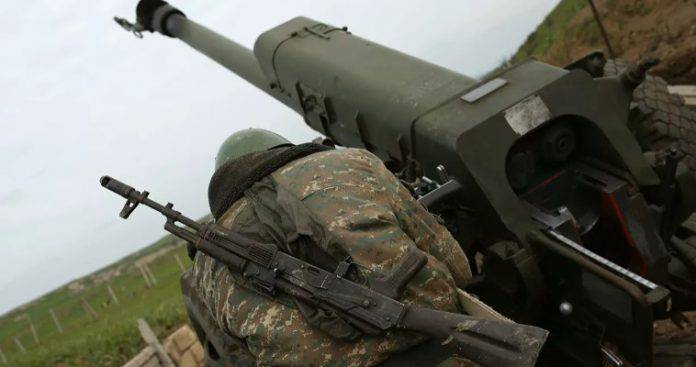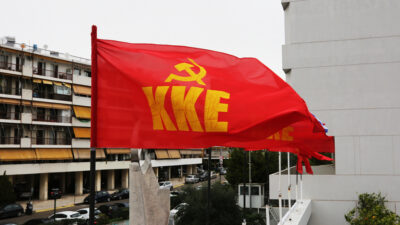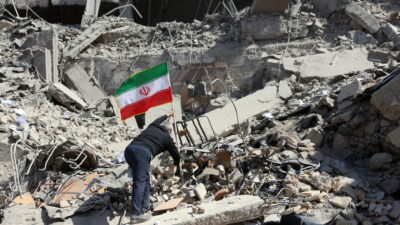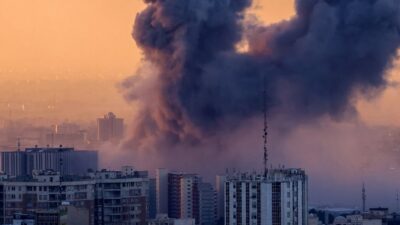Nefeli Lygerou: Nagorno-Karabakh: Erdogan pressures Russia and tempts the West
29/09/2020
The international community is watching with particular concern the armed conflict provoked by the Azeri attack on the Armenian held territory Nagorno-Karabakh. Today’s de facto borders were formed almost three decades ago. The Armenian-Azerbaijani conflict over Nagorno-Karabakh dates back to the early 20th century. The area was predominantly Armenian, but within the Soviet Union it was territorially annexed to Azerbaijan.
In 1991, after the collapse of the Soviet Union, a large-scale war broke out between Armenia and Azerbaijan, during which the Armenians took control of the disputed area, as well as the Azeri areas around Nagorno-Karabakh. The Armenian population of Nagorno-Karabakh approved in a referendum the declaration of the region as an independent state, which, however, was not recognized internationally. It survives and communicates with the rest of the world exclusively through Armenia, of which it is essentially an extension.
The clashes of the last few days raise fears that they could turn into a generalized war between Azerbaijan and Armenia. There have been heated incidents since the decade, but “we have not seen anything like this since the ceasefire reached in the 1990s. Fighting is taking place on all fronts,” said Alessia Vartanian, a senior Crisis Group analyst on the region of the South Caucasus.
It should be noted that the Caucasus is another area of geopolitical rivalry between Russia and Turkey, as is the case in Syria and Libya. Moscow has formed an alliance with Armenia and maintains military bases there. On the other hand, the Turkey-Azerbaijan relationship is more than an alliance. In essence, Azerbaijan identifies with Ankara, which acts as its “protector”, treating Azeris, who are Turkic, as a brother nation.
It is taken for granted that the Azeri attack was carried out with Erdogan’s permission, if not at his instigation. In contrast to the Kremlin, which called for an immediate ceasefire, Turkey has said it supports Azerbaijan. The Turkish president, in fact, demanded the immediate withdrawal of the Armenians from the territories of Azerbaijan that they occupied three decades ago. For his part, National Defense Minister Hulusi Akar said Turkey is with its Azeri brothers in defending their territories.
The Russian stance
It is a given that Armenia will be directly involved in the war if the Azeri attack escalates and endangers Nagorno-Karabakh. Due to its energy resources, Azerbaijan has the financial capacity and has seriously strengthened the combat readiness of its armed forces by purchasing modern weapons systems (including Russian). On the contrary, Armenia does not have serious financial resources.
This practically means that an Azeri-Armenian war will depend on many factors. In fact, the information that Turkey is constantly sending experienced (from Syria and Libya) jihadists to the Nagorno-Karabakh front raises real dilemmas for Moscow. Although so far it has maintained a moderate stance, raising the flag of a de-escalation of the conflict, it is a given that it is not going to tolerate a military victory of the Azeris over the Armenians.
If that were the case, Turkey would gain a serious geopolitical advantage in the South Caucasus, which is Russia’s “soft underbelly”. And as he had shown in the case of Georgia under President Saakashvili, Putin is not going to allow such a development. In other words, if the conflict turns into a war, the Russians are expected to support the Armenians.
The sudden resurgence of a frozen war front on an Azeri initiative does not seem to be irrelevant to Ankara’s plans and expediencies. In fact, it is not ruled out that it may be linked to developments in the Eastern Mediterranean. It is estimated that Erdogan may seek to “sell” to the US and NATO that if he wants he can corner Russia and that Turkey continues to be a bulwark on Russia’s descent south.
New front
Ankara is opening this new front at a time when it is exposed on many fronts around its borders and has also caused intense discomfort in the western capitals, although we can not yet speak of diplomatic isolation. It is indicative that the Turkish lira continues its rapid decline, falling to a new record level. The exchange rate of the Turkish currency plunged by 1.5%, now having a exchange rate of 7.79 liras to the dollar. The prices of government bonds in dollars issued by Azerbaijan and Armenia fell by 3-4 cents.
Despite Turkey’s saber rattling, its economy has been on its knees and the fronts in Iraq and northern Syria, its military involvement in Libya, its piracy in Cyprus and the potential Greek EEZ are aggravating the climate. Unless the West rushes to “buy” what Erdogan is trying to “sell”, then this “soap opera” will have more interesting episodes.





